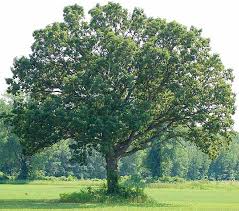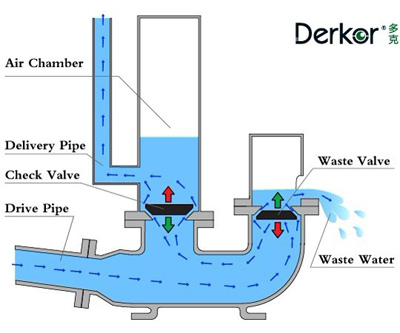|
In 1840 when James Wagg was 18, he began cultivating a few acres adjacent to his father’s farm and discovered that he loved working the soil. Soldiering, sailing and adventuring in general held no appeal for him. He was a born farmer.
Because he loved the work, and because he read everything available about farms and farming, in a few years his few acres were the most productive around. The southern boundary of James’s property was a stream that ran through the land of his neighbor to the south and west. This neighbor figured a way to get part of James’s farm was to divert the stream to a more northerly path.
The judge that heard the resulting dispute had to follow the wording of the deed and allow the ownership of about an acre of the farm to go to the neighbor. James argued the unfairness of the situation so the judge in his ruling did allow James to “Plant, raise to maturity and harvest…” one last crop on the disputed land. James planted the ground in white oak trees which mature in about 100 years. Of course no one would buy land they could not use so for about the next century the grasping neighbor and his heirs paid the taxes on the useless acre.

White Oak
James was doing well at the farming business and in 1844 bought some additional land along a stretch of the Androscoggin River. The ground was a bit rocky and sloped down from north to south. It had been left to go to brush in favor of land both upstream and down where farming was easier. He set to work clearing brush and picking stones and in a years time he had ground suitable for plowing.
Rather than planting in that first season, James built a large wooden trough all along the north boundary of the field. An overflow trough led any water that might spill from the main trough back to the river bank. Then he hitched up his wagon and drove to Portland to take delivery of a ram pump and 400 feet of pipe. The better part of the next year was spent installing the pump and building the water distribution system. The pump used the flow of the river to raise a fraction of the water to the storage trough. For the next 40 years, as long as James continued in active farming, he had a farm that was well drained in wet years and well irrigated in dry.

Ram Pump
James was clever, industrious, and thrifty. This made him a natural target of the matrimonially minded maidens of Danville as well as the surrounding towns. He enjoyed the company of several young ladies but his focus was on his business and he never allowed any entanglements or even misunderstandings of intentions to arise. In fact when he turned 30 in June of 1852 he supposed he would remain a bachelor.
In Danville on August 19, 1835 Jonathan and Mary Libby, after 12 years of marriage, produced their only child, a daughter named Louisiana in honor of Thomas Jefferson who the Libby family, as hereditary Democrats, held in high regard. On September 9, 1850 Mary died a lingering and painful death. Louisiana had just turned fifteen and took her mother’s death hard. In February of 1851 Jonathan Libby remarried to Dorothy Penley, a woman only 5 years older than Louisiana.
Louisiana became difficult and her parents could not cope with her so in September 1851 she was sent to a boarding school in Oxford County to get her out of the house. There she remained year-round until the spring of 1853 when she graduated with honors in animal husbandry.
James Wagg was surprised when in early June of 1853 a seventeen year old girl knocked on his door looking for work. Louisiana had asked for the most successful farmer in town and had been directed to James’s place. She could handle horses and oxen, conduct a lambing, practice rudimentary veterinary medicine and manage all sorts of farm chores.
James was tempted both by her skills and her person but he knew that it would be improper to take in a “hired man” of the female sex so he sent her home to her parents. Every day, Louisiana came back and without direction took on whatever task she thought would do James the most good. Each night she returned home to the other side of town. She never mentioned payment for her work and after two weeks of this behavior James passed her two week’s wages without comment.
Jonathan and Dorothy were not bad people though their behavior toward Louisiana might not have been sensitive to her feelings for her mother. Jonathan and James were acquainted as fellow farmers in a small community but not close friends. Toward the end of June Jonathan and Dorothy came by the James Wagg farm for a chat. James called Louisiana in from the field and they sat in James’s parlor.
“Mr. Wagg”, said Jonathan. “In spite of our differences with the girl we care for her and are concerned that her reputation will suffer from her spending so much time in your company without a chaperone.”
“I understand”, James said. “I have had the same concern, but the fact is she is as good a hand as any two men that ever worked for me. I kind of turned my back on the social implications of her working here and I apologize. Of course we will have to discontinue her employment.”
“How do you feel about that Louisiana?” Dorothy asked.
“I will miss the money”, Louisiana replied, “But unless you lock me in the house or Mr. Wagg is prepared to physically remove me from the property I will continue to come and work as before.”
At this point James was amazed to hear himself say, “Mr. Libby, if Louisiana is willing I would like to ask your permission for us to marry.”
There was nearly a minute of silence which seemed longer to James. Finally Louisiana spoke saying, “Mr. Wagg, I did not come here for that purpose and never considered that such a thing might be possible. Please let me think about it until this time tomorrow.”
So it was agreed among them that the choice would be Louisiana’s. The next day she said that she would make him the best wife a man ever had but asked that they wait until after her eighteenth birthday to wed. In the meantime she would live at home and work on the farm as before. James and Louisiana were married in Danville on September 26, 1853.
It was about two weeks after the wedding that James first asked Louisiana her views on slavery. Like most Maine folks Louisiana declared herself against it. And what about her views on property rights, James wanted to know. Louisiana again answered as most people would that a person’s property should not be subject to confiscation without cause. So if a person legally owns a slave should others conspire to deprive that person of his property?
“I’ve got you there”, said Louisiana. “The law of the land may declare one person the property of another but there is a higher law that cannot be avoided. James Wagg, are you a conductor?”
“Station master”, James answered. “Come with me.” He led Louisiana out to the irrigated field and showed her a concealed door at the end of the main irrigation trough. It led to the enclosed space beneath the V shaped bottom of the trough.
“Oh Lord”, she said. “Surely you don’t make people hide out in this cold wet chamber. I wouldn’t make a dog spend the night in such a place.”
James pulled on a bit of exposed tree root and a whole section of the ground under the trough raised on rails and slid back to expose an underground chamber about eight feet deep and ten by twelve feet in floor area. The entrance was narrow but serviceable for a person to crawl backward through and down the ladder to the larger chamber.
In the chamber below were beds and bedding, a table, fresh water in a keg and other kegs of supplies which doubled as seats. Beneath one of the beds a ventilation supply pipe emerged from the chamber wall and near the wooden ceiling of the chamber a ventilation exhaust.
There was a smokehouse adjacent to the irrigation trough. The smokehouse fire drew its combustion air from the ventilation exhaust of the chamber below. The ventilation supply was drawn into the chamber by the fire draft. It passed through an annulus between the smokehouse chimney flue and the chimney itself so that clean, dry, heated air was supplied to the chamber.
“This is said to be the most comfortable stop on the underground railroad”, James said. “I propose that we spend a night or two down here ourselves when we know it to be otherwise vacant.”
James and Louisiana had five children:
Fanny 1855
Mary E 1857
James E 1859
Howard 1867
Herbert 1869
James and Louisiana ran the most prosperous farm in the Androscoggin valley. James lived to see his children all grown and settled. He died in January of 1892, one of the prominent citizens of Danville. Louisiana never remarried and lived on the farm until her death in April of 1916 in the eighty-first year of her life.
|




